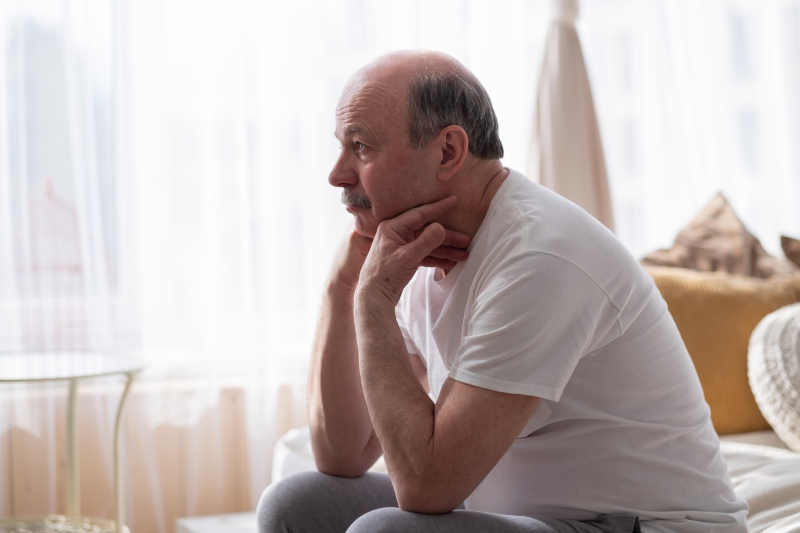7 Warning Signs of Depression in Seniors
Our physical and mental wellbeing are closely related throughout our lives. However, that association may become more obvious as we age. For the time being, we’ll set aside worries about quality of life to discuss how deadly depression may be. Particularly when accompanied with comorbid disorders, which can both induce depression and worsen it as well as worsen depression’s prognosis for health outcomes.
According to the CDC, depression affects up to 13.5% of those who need home care or 5% of the older population. Unfortunately, it’s challenging to pinpoint a definite number because depression is frequently misdiagnosed and mistreated. The good news is that depression in older people can be treated, and there are many ways for loved ones to support them.
Seniors and Depression
Depression and the elderly are hardly alien concepts. Stressors may become increasingly prevalent as we age. Age can present a variety of difficulties, including decreased mobility, frailty, chronic illness, pain, bereavement, elder abuse, and socioeconomic deterioration.
How big is the issue exactly? According to the CDC, depression affects up to 5% of older people or 13.5% of those who need home care. Determining a definite number, however, is challenging due to depression’s underdiagnosis and frequent lack of treatment.
A contributing factor to the problem is how simple it is to ignore symptoms when they coexist with other diseases. They may also be simple to confuse with drug side effects. Even more confusion can result from the fact that certain dementia and depressive symptoms are similar. Contrary to dementia, however, mental decline in depression happens more quickly, physical skills continue to degrade slowly but normally, and depressed people become aware of their memory issues.
Depression in Elderly Populations: Warning Signs
Everybody experiences sadness occasionally, but when does it turn into depression? According to mental health doctors, a person has a gloomy mood for at least two weeks. The following are some of the most typical depression symptoms in elderly people:
- Poor sleep quality
- Trouble focusing
- Lack of interests
- Social isolation
- General melancholy
- Persistent concern for one’s health
- Unwanted weight gain or loss
Treatments for Depression in Elderly Adults
While there isn’t a magic cure for depression that can be applied in a single afternoon, there are many great alternatives. Cognitive-behavioral therapy has shown to be useful in assisting seniors in letting go of thoughts that fuel depression. Support groups have been proven to be beneficial for people going through similar problems.
The answers must be as diverse as the causes of depression. These remedies could in some circumstances be as basic as lifestyle adjustments. Hence, a healthy diet and exercise. It can also be beneficial to plan outings and weekly social gatherings, offer aid with transportation requirements or meal preparation, and discover other simple ways to support elderly family members.
Management of Elderly Mental Health
Seniors with depression may experience significant functional impairment. Older folks may be reluctant to discuss their symptoms of depression. It may be especially harder for those who live alone to seek assistance. That combination may be harmful. But with the appropriate attitude to treatment, our mental health may be improved, just like our physical health. When it comes to seniors, this frequently entails creating plans that give them more autonomy, security, and social support.




